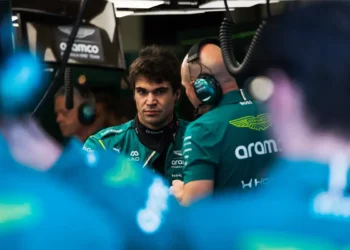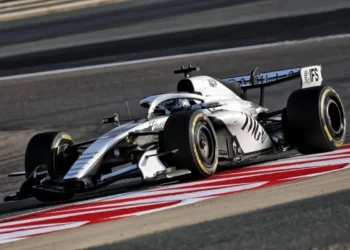Title: Formula 1’s Outdated Scoring System: Is It Time for a Major Overhaul?
In the high-octane world of Formula 1, a shocking twist has emerged that could change the title race dramatically! Lando Norris’s ambitious campaign for the championship just hit a massive roadblock following his disappointing DNF at Zandvoort. With this crucial setback, Norris has effectively lost his only ‘joker’ card for the remainder of the season, leaving him with little room for further slip-ups if he hopes to outpace his McLaren teammate, Oscar Piastri. The tension is palpable as Piastri’s momentum surges, thanks to yet another exhilarating win. But what if the scoring system were different? What if we rewound time and reintroduced a 1970s-style points system?
While it may sound outrageous to the current generation of F1 fans, revisiting the historical scoring methods could have transformed the dynamics of the Norris-Piastri battle. In an era when mechanical failures were rampant, a system that allowed drivers to drop their worst results made perfect sense. It wasn’t until 1991 that drivers began to retain every point they earned throughout the season, forever altering the landscape of the championship.
In the early days of Formula 1, only the top results from a driver’s season counted towards their total. This meant that drivers had ‘jokers’ to play, cushioning the impact of bad luck that often stemmed from technical retirements. The rationale? It aimed to level the playing field and ensure that the fastest drivers emerged victorious without being penalized by misfortune.
For instance, in 1950, only the best four results from seven races counted toward the championship, evolving to five or six as the number of races grew. By 1967, the championship structure allowed for the dropping of a driver’s worst race from each half of the season, making for a more engaging battle.
If this ‘dropped scores’ system were still in play today, Norris’s catastrophic retirement at the Canadian GP would be a non-issue. For Piastri, the situation would be slightly altered; he would drop two points from his performance in Melbourne, but ultimately, the stakes would be less intense. Zandvoort, however, would still sting for Norris but would not eliminate his chances entirely. His DNF would simply be a non-counting result, whereas Piastri’s points from Hungary would be off the board until he achieved another podium finish.
Could this convoluted approach be seen as unfair? That’s certainly up for debate. Take, for example, the infamous 2016 Malaysian GP, where Lewis Hamilton’s engine failure drastically altered the title chase against Nico Rosberg. Had Hamilton finished that race, the championship narrative would have likely been radically different.
The reality is that Norris’s technical retirement is a bitter pill to swallow, especially considering the current 34-point gap that doesn’t accurately reflect their competitive performances. While Piastri has shown consistency and blistering speed this season, Norris is not far behind, often separated by mere thousandths of a second in qualifying.
The points system has shifted dramatically over the decades, and while the modern era rewards consistent performance, it also raises questions about fairness. In 1980, the introduction of a ‘best 11’ results system favored outright victories over consistent second-place finishes. However, the 1988 season saw Alain Prost score more points yet lose the title to Ayrton Senna, igniting a debate that led to the eventual retirement of the dropped-scores concept as car reliability improved.
But let’s face it: complexity is the enemy of engagement. Formula 1, like any sport, needs to be accessible to fans, and the convoluted arithmetic of dropped scores only complicates the experience. For comparison, football’s simple 3-1-0 structure is easy to digest for fans of all ages.
So, could a return to a dropped score system make the title race fairer today? Perhaps, to some extent. Right now, Norris is forced to compensate for bad luck, a reality that feels unjust. However, the technical nature of F1 is integral to its charm, and the challenges it presents are what make the sport exhilarating.
The debate over the points-scoring mechanism is not just a matter of numbers; it’s about the essence of competition. A championship isn’t merely about identifying the strongest athlete; it’s about determining a victor within a specific framework. And that framework is what keeps fans coming back for more, even when the stakes are higher than ever. As we hurtle toward the end of the season, the question remains: will these rules continue to shape the fate of champions, or is it time for a radical overhaul? The clock is ticking!










